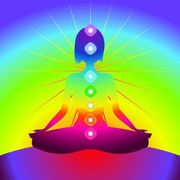 Photo: Getty Images
Photo: Getty Images
In contrast to Western medicine, much of which targets separate body areas, oftentimes advocating the use of pharmaceuticals as a first resort, holistic therapy is a generic term for any treatment or therapy that is intended to treat the individual as a whole on all levels - mind, body and spirit.
Many of these types of treatments date back thousands of years (the Chinese and Indian cultures are responsible for many therapies used today), yet new therapies and treatments are still in the development process at the present time.
Holistic health includes many of the various treatments that come under the “alternative medicine” rubric. However, it’s important to note that not all alternative medicine treatments are necessarily holistic.
Generally, conventional medicine seeks to treat the symptoms of a medical issue using drugs, surgery or physical manipulation. This can be distinguished from a holistic approach, which attempts to address the actual cause of the symptom itself.
Holistic therapists and practitioners strive to treat the "whole person" rather than merely treating the individual areas of the body where physical symptoms occur. In addition, self-care and preventative care are of the utmost importance to holistic practitioners, who recognize that our pain or discomfort is usually merely a symptom of some type of imbalance.
Imbalance could be a physical matter, such as the product of an unhealthy diet leading to an ailing physical body. Or, physical imbalance could be due to lack of exercise or sleep.
Imbalances may also stem from one’s mental, emotional, or spiritual needs not being met. All aspects of a person (mind, body, spirit, or emotions) are examined with holistic treatments and therapies.
And, holistic therapists or healers analyze the information gathered in its totality before suggesting potential treatments. Practitioners and therapists who utilize the holistic health approach include naturopaths, homeopaths, herbalists, acupuncturists, and nutritionists.
Some examples of holistic medicine are aromatherapy, natural diet, exercise, herbal remedies, homeopathy, acupuncture, reiki, massage, naturopathic medicine, energy-based therapies, and Chinese medicine, just to name a few.
Holistic treatments complement each other, such that one’s homeopathy would work well with one's psychotherapy. Holistic methods focus upon the interconnectedness of all working elements, such that one is less prone to stress-related illnesses when working through emotional issues.
Sources:
What is Holistic therapy? Web. www.myshrink.com. Accessed 25 Jan. 2012. http://www.myshrink.com/counseling-support-center.php
What is holistic therapy? Web. www.theraiesguide.co.uk. Accessed 25 Jan. 2012. http://www.therapiesguide.co.uk/TG-define-holistic-therapy.htm
Reviewed January 26, 2012
by Michele Blacksberg RN
Edited by Jody Smith






Add a CommentComments
There are no comments yet. Be the first one and get the conversation started!